Ripples of Hope
As I write this, on June 6th, I am reminded that it was on this day in 1968 that hope was dashed for millions of us as Robert F. Kennedy lay dead in a hotel kitchen in Los Angeles. Hope dissolved into despair because the glimmer of new leadership evaporated, coming so soon after the assassination of Dr. Martin Luther King, Jr. in Memphis just two months before. “Ripples of Hope” was the title of a speech Bobby Kennedy gave in South Africa on June 6th, exactly two years prior to his death, a classic statement that bears a new reading in these days when our nation appears rudderless in a time of crisis. How did we get to this place? Despite the power of sound-bites, there is no easy answer.

George Floyd is dead. Candles are bring lit in his memory, and we are being treated with the drug of mass media coverage. But what will happen to the national debate once attention shifts to the next crisis? One thing is clear in this 21st century America: our moral outrage, our ethical concern, measured by our collective attention span, has grown dangerously short.
Rightly, the murder of Mr. Floyd, while in the hands of law enforcement, has triggered an awareness that George Floyd’s death by asphyxiation reflects something more insidious in our society than just one example of a freak outbreak of unrestrained evil. There are much larger issues here, even if unrecognized by the current occupant of the White House. There is now something of a moral consensus across the nation that we all – even though we had no part in this heinous act – are deeply implicated.
This is not to say that we now face a national moral panic – millions of otherwise respectable Americans will deny any sense of responsibility, because the lesson we are learning from the top is that it is always best to shift responsibility elsewhere, usually to some one or some group that we would prefer to just go away. There is virtually no recognition of the threads of collective responsibility – that is because we are no longer a society but an uneasy aggregate of individuals, more concerned about some valued “inalienable right” than a sense of community. There is lip service to an underlying moral imperative, but there are few among us, or among our leaders, who can honestly say along with John Donne, “Any man’s death diminishes me.”
Although George Floyd’s murder might be a cruel aberration, it reflects a pattern of violence in our culture, not just embedded in our policing tactics but in our films and videos, our perpetual war machine, and especially in our sports arenas and football fields. We have bestowed on our children a culture of violence. It is deeply ingrained, in our street culture, in male dominance, even as quasi-religious catharsis. Our moral sense is threadbare. And Mr. Floyd is just the latest (but not the last) victim. Quite typically so, because the victims are most often the innocent, the minority or those most dispensable and vulnerable.
No society can allow this pattern to continue and hope to survive. In the misplaced search for leadership we have allowed our structures of social responsibility to erode. We certainly should have learned by now that politicians can utter few words that carry any moral weight. And when we idolize anyone with celebrity status, often for no good reason, we rob our children of any credible model of who we want them to be. By elevating hollow values of notoriety, we give our children no framework within which to develop common values or social responsibility. What we are left with is a world without a moral compass. Many in our midst will not even don a face mask, citing some principle of an “inalienable” right to freedom.
Morality is taught not by a textbook or an inherited belief system, but by being lived. It is learned by doing. We must recover a sense of social responsibility by rebuilding and enhancing agencies of community service. Community service is more powerful than any formal training or religious instruction, even supposing an agreed curriculum could be devised. Nothing less can more dramatically change our world. Happily, it should not cost much to do this. NOT to do it will cost us much more.
The death of George Floyd has initiated a widespread debate, but the discussion always ends up with a question “What can I do?” Few people will look to governmental mandates that will change anything immediately recognizable. What we should expect – contrary to what is now being advocated – is for government simply to establish a moral framework within which institution-building can take place. But solutions to social problems can never be political. We must look to other agents of change in society. Educators, health care workers, parents and grandparents, even religious leaders, can step into the breach, but the messages must begin with healing and move on from there to reach something called the common good.
I believe we have reached a juncture in our national evolution. A political order based on the principle of individual liberty has produced a society less tolerant of “the other,” more harsh and abrasive in our personal relationships, and grounded in a predatory capitalism that leaves families broken, neighborhoods destitute, and hard-working people living paycheck-to-paycheck. We hear cries of impatience for “getting back to normal,” but what we have grown to tolerate is a “normal” that won’t work. It will only produce a new crisis. It will only speed along the gap between the wealthy elite and the rest of us. Few people have figured out what the “new normal” should look like, and that means there is an opportunity for those of us in the church to influence a new social order.
A single, almost unspeakable murder at the hands of the guardians of law and order, has left us full of despair, but perhaps not bereft of hope. Without hope we would truly be staring at the abyss. Let us pray that we might escape this future. But building a common vision for the future will not be easy. Fortunately, we do have a principle that can serve as our foundation for the future we build. It is summed up in one word; justice. Justice in everything we do, in personal relationships, in family commitments, in neighborhood programs for kids, in institutions in which we participate (including the churches), and in a nation in which all (where “all” means all) have the opportunity to flourish in an environment built on civility and mutuality.
For too long we have been chasing an illusive “American dream,” in which we have taught our children that happiness will come when they “do well.” Too often that has allowed us to ignore other people’s pain. Our spirit, our sense of fulfillment, is seldom nourished by our doing well. Rather, we are enhanced by doing good. Material success too often is hollow. Decency, charity, compassion, integrity, courage, persistence, faithfulness – just being there for the other whatever the circumstance – these are the things that matter. We count much more than an economic unit of production… our worth comes from what we are willing to share with others.
No act of compassion is lost or insignificant in the vast ocean of the human future. Perhaps this is the conviction that provides us with a ripple of hope.
As always, our thanks go out to our generous contributors. We pray that you will keep your families safe and be willing to give to those who are in the most need. We will continue to share this newsletter in the coming months and encourage you to share articles and insights that will help us all weather these difficult times.
Rick, Jennifer, Maynard, and the rest of the WesleyNexus team.
**********************************************
Kent H. Weaver – October 8, 1947– May 24, 2020: A Tribute
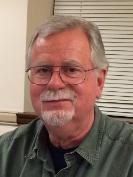
We all lost a valued colleague on May 24,when Kent Weaver passed from this life after battling colon cancer since last October. Kent was, as we like to say, a cradle-to-grave Methodist, having been baptized as an infant at Metropolitan Church, now known as National United Methodist Church (NUMC) in Washington, DC. A life-long resident of the Washington, DC area, Kent earned a B.A. in mathematics from Dickinson College and an M.A. in Education from George Washington University. While at Dickinson College, Kent met his loving wife Lois, and on August 15th they would have celebrated their 51st wedding anniversary. Kent and Lois raised two children, Todd and Kenley, each of whom are now married with families of their own. Prior to retirement in 2009, Kent spent 40 years with the Montgomery County Public Schools where he served as a high school math teacher, special education teacher, middle and high school counselor, high school counseling department chair, high school counseling specialist within the MCPS central office, and finally as supervisor of school counseling services for MCPS. At various times and for the last forty years, Kent immersed himself in a wide range of local church lay-leadership positions with a particular emphasis on hunger and homelessness. His colleagues at NUMC have recently honored Kent with tributes for his service, including a special memorial for his work with the shelter ministry team. Kent loved dearly the dialogue sustained weekly through the Science and Religion class at NUMC, and we at WesleyNexus are proud to join others in establishing an annual lectureship at NUMC in Science, Religion and Society, This way, Kent will be honored each year with a presentation open to the public by a renowned scientist and/or theologian. Our WesleyNexus Board has received several contributions toward this goal, and you too have that opportunity. When you send a check to us at WesleyNexus inc, 24500 Fossen Road, Damascus, MD 20872, be sure to utilize the memo line to indicate support for the “Kent Weaver lectureship” and we will add your tribute to the rest of our investment in this project. A special memorial service will be live streamed on June 13 at 2:00 pm with access from the website www.nationalchurch.org/live. If you miss the service live, it will be accessible on the nationalchurch.org website for several weeks, perhaps a month.
**********************************************
Science, Religion & Society: A Virtual Series – beginning June 29-30

The Institute on Religion in an Age of Science (IRAS), has been holding summer Conferences on Star Island (off the coast of Portsmouth, New Hampshire), for 65 years. It has taken a world-wide pandemic to to force an adjustment. However, beginning June 29 and 30, instead of gathering on Star Island, we will initiate a series of monthly virtual seminars, OPEN TO THE GENERAL PUBLIC as well as to all IRAS and ISSR members. The subject for this initial, two-part program has a catchy title but a serious focus:
Will Modern Civilization be the Death of Us? Reflections on the Earth’s Future.
The two part program will be something of a reprise of the successful presentations last February at the Seattle annual conference of the American Association for the Advancement of Science (AAAS), at which time some 200 persons enthusiastically participated in the IRAS session. Featured as speakers will be two familiar faces: Dr. William Rees, professor emeritus University of British Columbia, and Ruben Nelson, Executive Director, Foresight Canada.
A new way of envisioning tomorrow will be offered. When on a rugged landscape, complexity science teaches us to explore every possibility for which we have resources. In 2020, we find ourselves on such a landscape. It will not soon get smoother. Today, the dominant response of our modern cultures is still yesterday’s response – we commit ever more resources to solving the problems we can now see by developing STEM in conventional ways. In effect, we moderns have come to believe that the core work of the 21st century is to make modernity globally sustainable. Overwhelmingly, this is our driving focus. Accordingly, no serious and sustained efforts are being made to explore, understand and respond to today’s complexity with an entrepreneurial and imaginative spirit that questions the soundness of our commitment to sustaining current educational and scientific practices. We neglect, possibly at our peril, insights such as these: (1) No version of modernity can be made to be sustainable. (2) The core human work of the 21st century is not as we now assume. (3) Rather, we need to transcend our modern/industrial form of civilization. This means learning to let go of modernity by outgrowing it at every scale of our existence and to face the utterly new and historic work of becoming the conscious co-creators of the next form of human civilization – the Consciously Co-creative. A path forward will be offered, including new roles for science, technology and religion.
Each segment of this two-part program will last 90 minutes, and will include visual projections to enhance the presentation, and conclude with a Question & Answer session. Each program in this original series will be moderated by Dr. Ron Cole-Turner, professor at Pittsburgh Theological Seminary and the coordinator for the International Society for Science and Religion (ISSR) in North America. Each program will begin promptly at 5:00 pm Easttern time in order to accommodate our European members. REGISTRATION is required, but there is no cost to participants. For more information and to register, go to the IRAS webpage: www.IRAS.org. Better yet, just click open this direct link: You are invited to a Zoom webinar – in two parts:
When: June 29-30, 2020 04:00 PM Central Time (US and Canada)
Topic: Will Modern Civilization be the Death of Us? Envisioning Tomorrow’s Earth
Register in advance for this webinar on June 29:
https://us02web.zoom.us/webinar/register/WN_PiojqxMoTJ2STm6aqPfsCQ
Register in advance for this webinar on June 30:
https://us02web.zoom.us/webinar/register/WN_HV8n8WYjS9ui5uU_w7ar9Q
After registering, you will receive a confirmation email containing information about joining the webinar, and later you will receive a personal link to access each session of the two-part program on June 29 & 30.
**********************************************
How this Nobel winner balances physics and faith
An active member of her Waterloo, Ont., church, Donna Strickland has spent a lifetime bucking convention By Alanna Mitchell
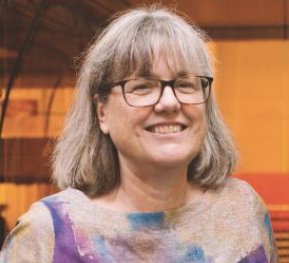
Donna Strickland was awarded the Nobel Prize in Physics (only one of three women) for her work in optics while still a doctoral student. She is currently a professor at the University of Waterloo and also a member of the United Church of Canada. United Church was formed in 1925 when the Methodist Church, Canada, the Congregational Union of Canada, and 70 per cent of the Presbyterian Church of Canada joined together. For Strickland, Going to church is about finding inner peace. And church has always been the United Church, right from her childhood in Guelph, Ont. She loves to sit in the sanctuary, quietly singing the hymns — she is an alto — and savouring the reminder that the world is a complex place and that she is just a tiny part of it. “Almost every religion is about love,” she says.
The article can be found here.
**********************************************
Reflections of a Religious Scientist: Finding Community and Joy in the Midst of Isolation and Loss by Dr. Grace Wolf-Chase
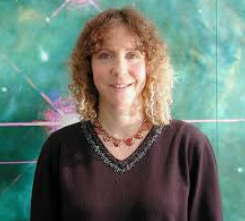
The Adler Planetarium in Chicago celebrated its 90th birthday in May but was forced to lay off 120 part-time and full-time employees. Included in the layoffs was Dr. Grace Wolf-Chase, an IRAS member and an active participant in the science and religion dialog in the Chicago area and regular contributor to Michael Zimmerman’s Clergy Letter Newsletter. Dr Chase-Wolf has reflected upon this experience in the first entry in her newly opened blog, Reflections of a Religious Scientist which can be found here.
“I have (finally!) started a blog post. I don’t know how frequently I will be contributing to this, but I invite you to read my first contribution, and if you find it constructive and worthy, please share with anyone you feel might benefit from it.”
More on the planetarium cutbacks can be found here:
**********************************************
What are we really doing when all we can do is pray—or not even? by Debra Dean Murphy
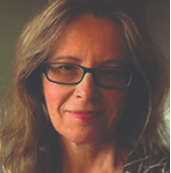
“It may be springtime and Eastertide, but for those of us possessed of a wintry spirituality, for whom lament slips more readily from the tongue than does alleluia, we take consolation in the truth that we are part of the communion of the helpless. We don’t seek fixes. We trust somehow that God’s silence is not a conundrum to solve but a mystery to abide. And if we are sometimes able to pray, it is because, in the struggle to hold together what seems irreconcilable—beauty and suffering and a thousand other things—our wintry hearts trust that there is no place from which the love of God is absent”.
**********************************************
The Exodus Is Not Fiction: An interview with Richard Elliott Friedman
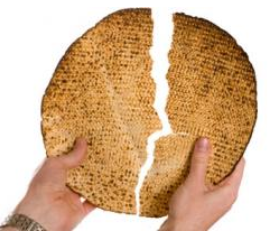
In this interview, the distinguished Torah scholar, Richard Elliott Friedman addresses the question of how to understand the story found in Exodus. Is it fiction or is there evidence to suggest that the story is grounded in history and if so, how is it to be understood.
Richard Elliott Friedman, who holds a Th.D from Harvard, is the Ann and Jay Davis Professor of Jewish Studies at the University of Georgia and the Katzin Professor of Jewish Civilization Emeritus of the University of California, San Diego, and was a visiting fellow at Cambridge and Oxford and a Senior Fellow of the American Schools of Oriental Research in Jerusalem. He is the author of seven books, including the bestselling Who Wrote the Bible? and Commentary on the Torah.
**********************************************
The Bible is Not a Prop. A message from Westar Institute www.WestarInstitute.org
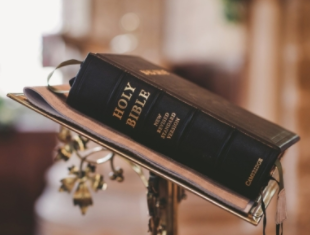
When the Bible is used as a prop for political advantage, and when that advantage is sought at the expense of justice supported by religious illiteracy, Westar is called into action.
A response from a respected Westar scholar is linked in this newsletter.
Religious literacy is about the promotion of critical thinking, which relates to the whole picture, politics included, of a future where Black Lives Matter in a society of justice for all.
David Galston, Westar Institute Executive Director
Susan M. Elliott has written on this issue for Westar here.
https://www.westarinstitute.org/blog/the-bible-is-not-a-prop/
